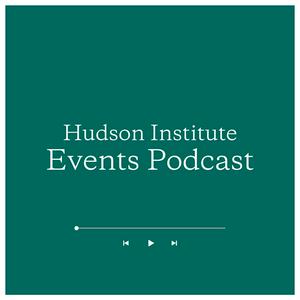Pas de publicité. Plus de Prime.
Pas de publicité. Plus de Prime.
Pas de publicité. Plus de Prime.
Pas de publicité. Plus de Prime.
Le podcast débute dans
- 0 sec.
A Strategic Response to Sino-Russian Cooperation: Perspectives from Europe and the Indo-Pacific
Security, Normalization, and International Cooperation in the Middle East with Sir Liam Fox
“Iron Curtain” at 80: Why the Special Relationship Is Essential to Defeating the New Authoritarians



Hudson Institute Events Podcast